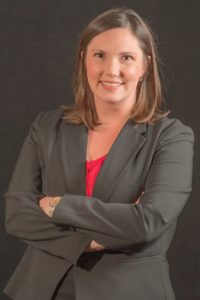
JOIN MAA TODAY!
New York is the financial capital of the country, and as such, we should have the highest number of MAA members. Right now, New York is not the leader in MAA members. New York Real Estate finance professionals need to be engaged in a vital way that directly impacts the way you do business. Whether you’re the CEO, CFO, CIO, Vice-President, Manager, Underwriter, Processor, Closer, QC, Servicer, in the Secondary Market–YOUR VOICE SHOULD BE HEARD. YOU SHOULD JOIN MAA–TODAY!
Follow this link to complete a simple form. It asks for your home address to identify your legislative representative, both at the Federal and State levels.
Speak directly with your members of Congress, state legislators and federal regulators about the impact of proposed legislation or regulations with the Mortgage Action Alliance, Inc.® (MAA). This voluntary, non-partisan and free nationwide grassroots lobbying network of real estate finance industry professionals, affiliated with the Mortgage Bankers Association (MBA), is dedicated to strengthening the industry’s voice and lobbying power in Washington, DC and state capitals across America.
Get involved with MAA to play an active role in how laws and regulations that affect the industry and consumers are created and carried out by lobbying and building relationships with policymakers. It only takes a moment to get started, and you do not have to be a member of MBA to enroll.
ACTIVE CALL TO ACTION EVENTS
None at this time
PREVIOUS CALL TO ACTION EVENTS
Urge Your Representative to Vote “YES” on Federal RON Bill
Last week, Representatives Kelly Armstrong (R-ND) and Madeleine Dean (D-PA) re-introduced the SECURE Notarization Act (H.R. 1059). As you may recall, this MBA-supported measure complements the 42-state remote online notarization (RON) laws by creating a set of minimum federal standards, while allowing individual states the flexibility and freedom to implement their own RON standards.
- Why it matters: A direct result of MBA’s outreach and advocacy, H.R. 1059 requires tamper-evident technology in electronic notarizations and provides fraud prevention using multifactor authentication for identity proofing and audiovisual recording of the notarial act.
- What’s next: A strong “Yes” vote in the House will help create a pathway for MBA and our coalition partners to build support for the pending Senate companion bill, while pushing for avenues to have the bill potentially considered and moved by the full Senate in the 118th Congress.
Federal Ron Bill
Last year, Senators Mark Warner (D-VA) and Kevin Cramer (R-ND) introduced the SECURE Notarization Act of 2021 (S. 1625). Co-sponsorship of this bill was a key ask during MBA’s National Advocacy Conference earlier this year. This bipartisan, bicameral legislation would allow notaries in all states to perform RON transactions.
Your advocacy matters! Just last week, the full House of Representatives passed its RON companion legislation, H.R. 3962 by an overwhelming vote of 336-90, signaling to the Senate that there is considerable interest to clear the bill in the upper chamber.
S. 1625 requires tamper-evident technology in electronic notarizations and provides fraud prevention using multifactor authentication for identity proofing and audiovisual recording of the notarial act. To date, forty-one states have enacted their own laws to enable the use of RON. The federal legislation would complement those existing state laws, while allowing individual states the flexibility and freedom to implement their own RON standards.
- Why it matters: A direct result of MBA’s outreach and advocacy, S. 1625’s minimum standards for RON are consistent with those provided in the MBA-ALTA model state RON bill and the Mortgage Industry Standards Maintenance Organization (MISMO) RON Standards.
- What’s next: Thanks to your help, the robust floor vote on July 26 in favor of H.R. 3962 achieved two key objectives: (1) the measure cleared the full House with strong momentum; and, (2) helped create a pathway for MBA and our coalition partners to garner further support for the measure’s Senate companion, S. 1625 – while pushing for avenues to have the bill potentially considered by the full Senate prior to the close of the 117th Congress.
Tell your Senators to Expand Affordable Homeownership Opportunities and Support Community Revitalization!
Senators Ben Cardin (D-MD) and Rob Portman (R-OH) recently introduced Bill S.98, the Neighborhood Homes Investment Act (NHIA), a bill that would create a new federal tax credit to fuel development. This bipartisan legislation would encourage the rehabilitation of single-family homes and potentially attract $100 billion in development activity to underserved rural and urban communities across the country.
The NHIA builds on the success of the Low-Income Housing and New Markets Tax Credits, which support affordable rental housing and economic development, respectively, but are not designed to build or rehabilitate owner-occupied homes. Bill S.98 would support the development of homes in rural communities struggling with the costs of new construction, as well as the rehabilitation of homes in blighted communities, where vacant homes depress property values and thwart broader revitalization efforts.



